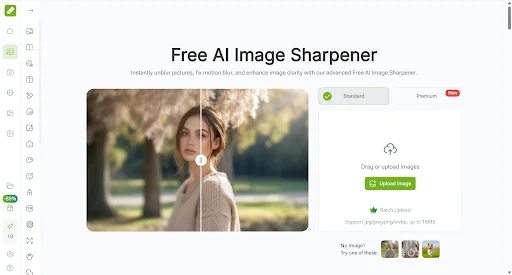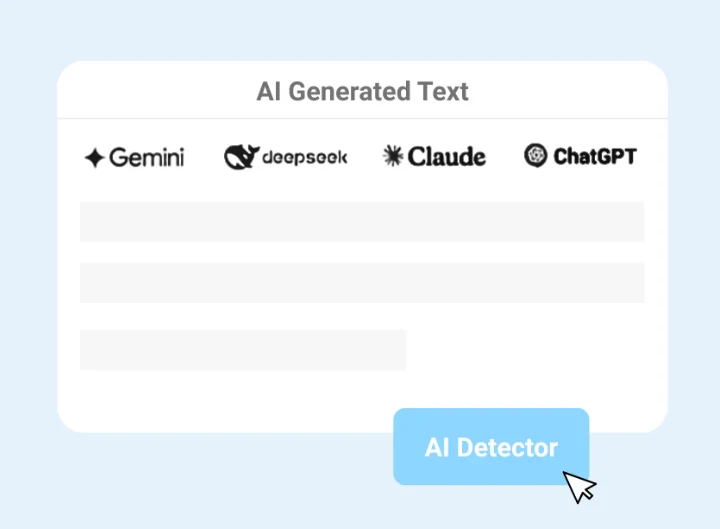AI in Marketing Is No Longer a Buzzword — It’s the Strategy

Artificial Intelligence has rapidly moved beyond theory and into the core of how marketing works. While AI was once viewed as a futuristic tool, it’s now embedded in the systems businesses rely on every day to reach customers faster, smarter, and with greater accuracy. By early 2021, AI was already transforming the way campaigns were run, content was personalised, and customer journeys were mapped.
This article takes a grounded look at how AI-powered marketing tools became essential in 2021, and what real-world applications were driving results across industries.
Smarter Targeting Through Predictive Analytics
Brands that used AI tools in 2021 were able to shift from reactive strategies to proactive ones. Predictive analytics lets marketers understand future consumer behaviours based on historical data. This meant more relevant offers, better timing, and higher conversion rates.
Retail and e-commerce companies led the way. By analysing browsing and purchasing patterns, they could deliver suggestions or reminders just when users were most likely to engage. It didn’t require guesswork. AI models crunched large datasets in real time, identifying who was likely to buy, when, and on which device.
Chatbots That Could Help
A major shift came with AI-powered customer service. Gone were the clunky, one-size-fits-all chatbots. In their place came smarter systems capable of handling actual conversations, answering detailed questions, and escalating issues when needed.
The most advanced bots in 2021 used natural language processing (NLP) to understand context and intent, a trend reflected in the Chatbot Trends Report 2021, which outlined rising adoption and improved customer engagement. A customer could type “Where’s my order?” and get a meaningful answer, complete with tracking details. Brands like Sephora and Domino’s were early adopters, showing that AI support could reduce response times, improve satisfaction, and cut down on support centre costs.
Smarter Ad Spend and Programmatic Advertising
Another major innovation was in paid media. AI took over much of the decision-making behind digital ad placements, a shift known as programmatic advertising. Instead of marketers manually setting bid strategies or choosing target segments, AI did it automatically.
Platforms like Google Ads and Facebook were already using machine learning to optimise campaigns, but by 2021, tools became more sophisticated. Advertisers could rely on AI to predict click-through rates, adjust bids in real-time, and pause underperforming ads without human intervention.
For businesses running multi-channel campaigns, this meant fewer wasted dollars and better return on ad spend (ROAS). Whether it was display, video, or search ads, AI was quietly working in the background, improving performance 24/7.
SEO: Smarter Search Strategies With AI Tools
AI didn’t just change how ads were served—it shaped how content was written and discovered. Search engines like Google have begun using AI models (e.g., BERT) to understand search intent more clearly. As a result, SEO strategies had to adapt.
Marketers leaned into AI-powered tools that analysed keywords, ranked content gaps, and suggested optimisations. These weren’t just keyword stuffers—they provided actual writing guidance based on how top-performing content ranked. This helped brands write more naturally while still appealing to search algorithms.
Tools like Clear Scope, Surfer SEO, and Market Muse gained traction in 2021 because they bridged the gap between human creativity and machine-driven optimisation.
Real-Time Data, Real-Time Decisions
Timing mattered more than ever. AI made it possible to act on user behaviour as it happened. Marketers could trigger workflows, serve retargeting ads, or update landing pages dynamically based on user signals.
Whether someone clicked on a link, visited a pricing page, or hovered over a product image, those actions weren’t ignored. AI captured them and triggered responses instantly.
In B2B settings, this helped qualify leads faster. In B2C, it meant shoppers saw what they needed without delay. No waiting for a weekly data report—AI delivered the insight and the action plan at once.
Email Marketing Reinvented
AI helped marketers move away from batch-and-blast email campaigns. Tools like Mailchimp and Active Campaign were offering predictive sending, content optimisation, and engagement scoring features by early 2021.
Instead of sending emails to everyone at 9 a.m., marketers could stagger messages based on when users were most likely to open and click. This improved open rates and kept deliverability scores strong. AI also suggested subject lines and preview text based on what had worked in the past, taking much of the trial-and-error out of email writing.
Ethical AI and the Role of Transparency
With all this automation came responsibility. Marketers began facing real concerns around how data was collected and used. GDPR and CCPA were already in effect, and consumer privacy was becoming a deciding factor in tool selection.
By 2021, ethical AI had started becoming part of boardroom discussions. Marketers needed to ensure algorithms weren’t biased, and data was handled transparently. Some companies made privacy a selling point, positioning themselves as secure, privacy-respecting alternatives in a data-heavy industry.
Trust was no longer just about product quality—it was about how tech was being used behind the scenes.
Where Things Were Headed in 2021
The direction was clear. AI wasn’t replacing marketers—it was enabling them. Those who embraced it were freeing up time, delivering more relevant experiences, and measuring success with precision.
By March 2021, the conversation had shifted from “Should we use AI?” to “How are we using it better than our competitors?”
The businesses that gained the most weren’t necessarily the biggest. They were the ones that stayed agile, experimented early, and built AI into their strategy in ways that made sense for their audience.

Curtain Dry Cleaning and Leather Sofa Cleaning – Reliable Care by Duo Nini

Brian Ferdinand of EverForward Trading Joins Forbes Finance Council, Expanding His Voice on Markets and Risk

Get Any Company Objectives or News of rox.com

How Technology Is Changing Addiction Recovery in the Digital Age.

Our First Winter Trip to Aspen — And the Decision That Made It Stress-Free

Unlocking Innovation: How an AI Software Development Service Can Transform Your Business

Artificial Intelligence: Transforming the Future of Business and Everyday Life

AI-Driven Image Restoration & Reuse: VisualGPT AI Image Sharpener








